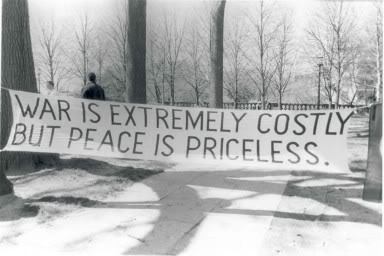Derrida writes, in his essay, that we only know what things are because we know their opposites. We know what things are because we know what they are not. This concept is understandable when we apply it to light and darkness or heat and cold. Science itself states that "darkness" and "cold" are simply absences.
Derrida's theory becomes more difficult to understand, though, when we apply it to other things. Take for example, peace. Do we only know what peace is because we know what the absence of peace is like? Do all people define peace in the same way? Because we have different absences of peace, is the presence of peace different in our own lives? Abstract concepts like these, then, become relative (in relation to Derrida's theory). What is peace the absence of? Violence? Chaos? And to what degree do we understand violence and chaos?
Do we conclude, then, that presence only exists based upon our understanding of absences? Or is it our understanding of what we have that allows us to comprehend what might not be? Can we really ever understand what we don't have?
Here are different ways people understand the word peace (according to tumblr):




No comments:
Post a Comment